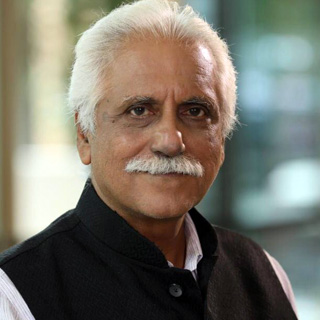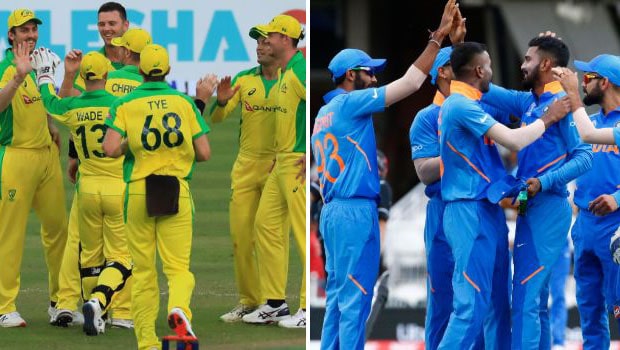The three-match T20 series between India and Australia starting Tuesday promises to be a mouth-watering contest. India are currently ranked no.1 in this format while Australia are the defending World Cup champions. The gap between the two teams is miniscule. The battle for one-upmanship –the battle will be intense.
The series has added significance given the impending World Cup which starts Down Under in the third week of October. Both teams will see these matches as crucial to their preparation for the mega tournament. There is opportunity for some last-minute fine tuning, but it is also important to win and carry the momentum into the World Cup.
Playing at home would ordinarily give India an advantage. On sluggish pitches, Australia’s potent pace attack could be made benign. As has often been evidenced in the past, their batsmen struggle against India’s spinners on slow turners.
Australia are also without four major players. Star opener David Warner, who has had a busy home season and the IPL, has been rested. Pace spearhead Mitchel Starc and all-rounders Mitch Marsh and Marcus Stonis are carrying niggles which the Aussie selectors were wary of aggravating.
These four played important roles in Australia’s maiden World Cup title in the UAE last year and obviously their absence could handicap their prospects of winning this series.
But how much this can benefit India remains to be seen. Remember, most of the Australian players ar part of the IPL and know Indian conditions as well as players thoroughly.
India will be under greater pressure without doubt. A disastrous performance in the Asia Cup exposed worrisome chinks and shortcomings which had coach Rahul Dravid and captain Rohit Sharma fretting. These need to be addressed urgently.
Essentially, India’s problem is inability to force victory when matches get tight. In the Asia Cup, the team featured in three last over finishes, twice against Pakistan and once against Sri Lanka.
The first match against Pakistan was won, but after much huffing and puffing chasing a modest target. The other two matches were lost from strong positions when victory looked a formality, betraying loss of focus and nerve when the situation got tough. The defeats came in the Super 4 stage which dunked India’s chances of reaching the final.
In the period that India were floundering in the Asia Cup, the Aussies had a sequence of productive white ball matches against New Zealand. Even without some of their best players, the hardy Aussies would extract a heavy price against a team that is mentally fragile.
Injury to Ravindra Jadeja during the Asia Cup, which has also ruled him out of the World Cup, weakens the team considerably. It also imposes a great burden of expectation on Axar Patel who has to prove he is worthy of being in the World Cup.
Ditto all the others named in the 15-member squad. Particularly Jasprit Bumrah and Harshal Patel, returning after injury and Ravi Ashwin, who was perhaps the most-debated inclusion.
As back up for injury to players in the main squad, India’s selectors named 4 standbys, among them senior pro Mohamed Shami who many experts reckoned should be on the plane to Australia.
Shami would surely have played at least two of the three matches in the current series to reiterate his credentials and earn a belated entry into the squad even if in contrived circumstances. Unfortunately, he tested positive for Covid and has been ruled out which blunts the attack Rohit would have liked for this series.
While failure to reach the final of the Asia Cup was an indictment of India’s poor mental preparation for a multi-nation tournament, there were nonetheless some positive takeaways.
The top four in the batting order – Rohit Sharma, K L Rahul, Virat Kohli and Surya Kumar Yadav – all hit good form.
Beleaguered Kohli regaining his touch, ending a protracted lean trot with his much-awaited 71 century was the most significant development where the Indian team was concerned, It ended concerns about the heft of the top order, which had begun to spook the team management, selectors and fans.
Hardik Pandya had a superb match winning effort in the first game against Pakistan and is now widely acknowledged as India’s most valuable player in this format. Bhuvneshwar Kumar was superb in the Powerplay and young Arshdeep Singh at the death. Among spinners,
However, leggie Yuzvendra Chahal was a tad disappointing in UAE and needs to find his wicket-taking rhythm quickly to give the bowling attack much needed edge.
If he does well against the Aussies, especially against accomplished strikers like Steve Smith, Glen Maxwell, Tim David, Mathew Wade and it will be a confidence booster for him and the team.
The three-match series against Australia should also settle the issue of whether Dravid and Rohit see Rishabh Pant or Dinesh Karthik as first choice wicket-keeper batsman. The history of India-Australia cricket—in any format — since the turn of the century is replete with stunning performances, surprises and several topsy-turvy results so I would be hesitant to predict a winner. Victory will not be easy for either side. It will have to be hard-earned.


























